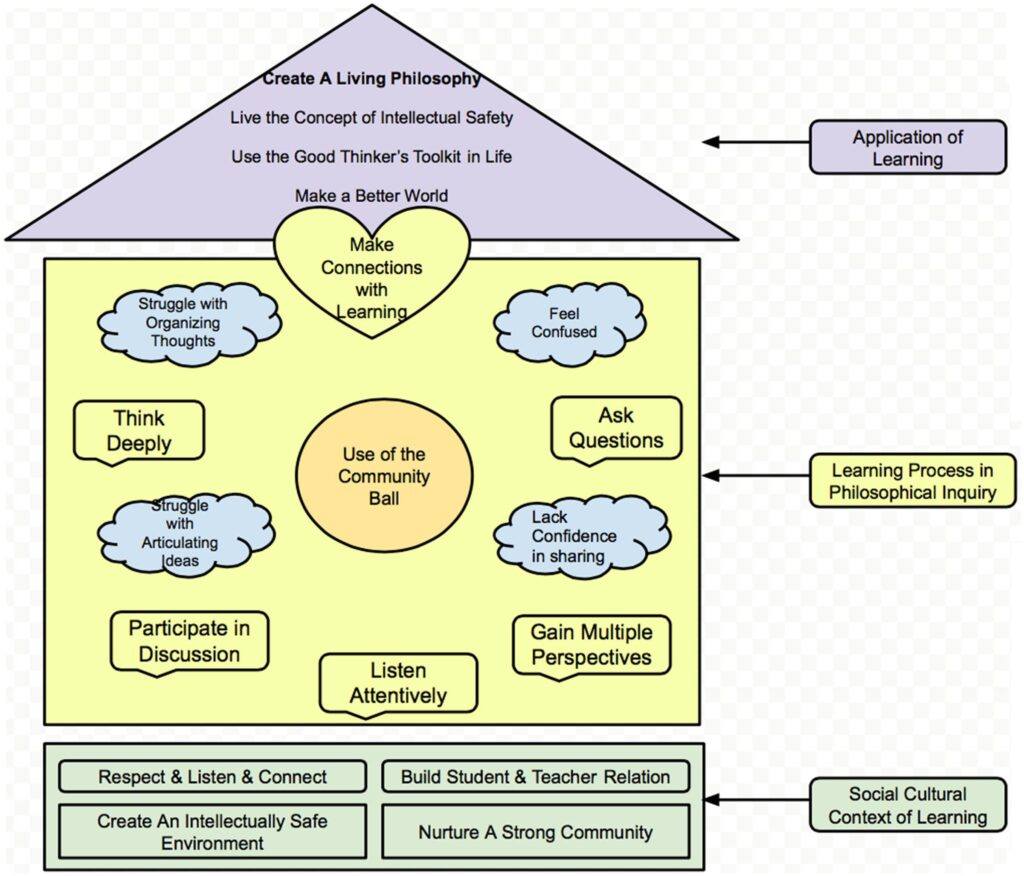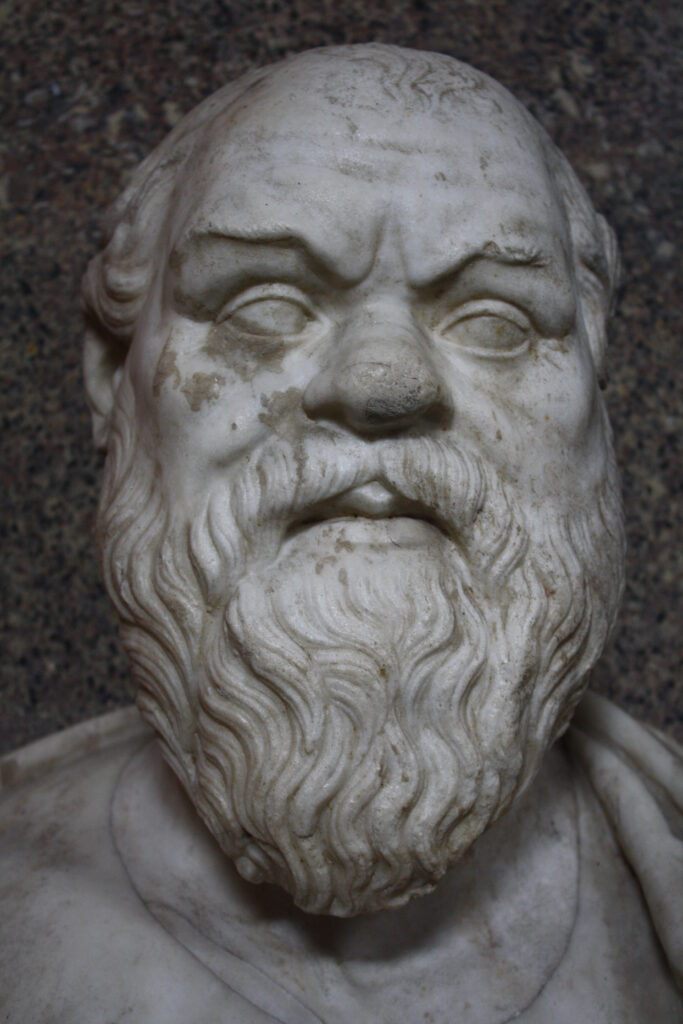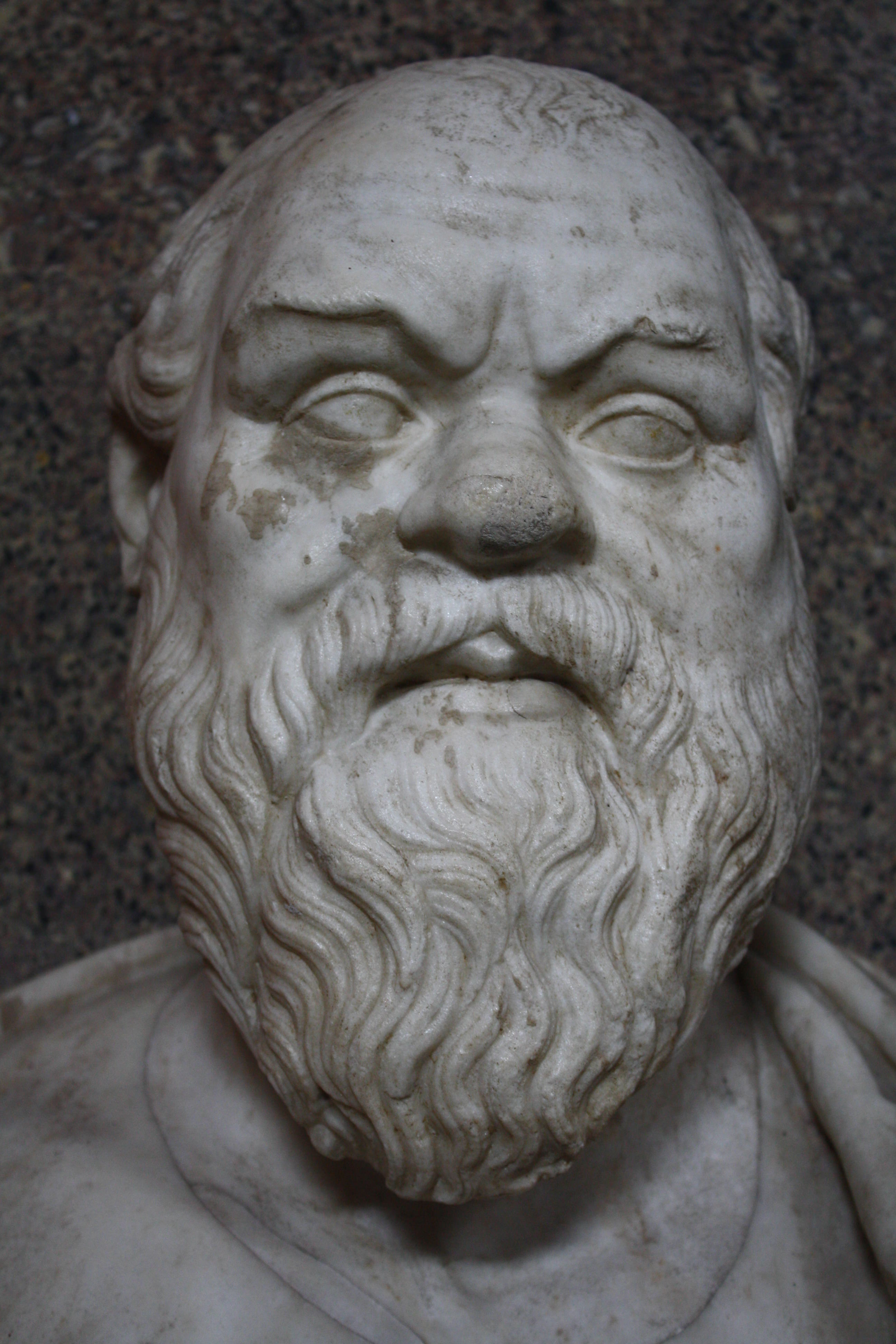Yes, we can learn and live by Socrates’ wisdom today. His teachings on ethics and critical thinking remain relevant.
Socrates, the ancient Greek philosopher, profoundly impacted Western thought. Born in Athens, he never wrote his teachings down. Instead, his students, like Plato, documented his ideas. Socrates emphasised the importance of ethics, questioning, and self-awareness. His method of dialogue, the Socratic method, encourages critical thinking and debate.
These principles are still valuable today in both personal and professional contexts. Learning from Socrates helps us develop a deeper understanding of ourselves and the world. His timeless wisdom continues to inspire and guide those seeking truth and knowledge. By embracing his teachings, we can foster a more thoughtful and ethical society.
Table of Contents
Socrates’ Core Teachings
Since the 1990s, I have been captivated by Socrates and his teachings. Socrates wrote nothing down, yet his words echo through time. His core teachings offer timeless wisdom. Can we embrace and live by Socrates’ wisdom today? Let’s explore two fundamental aspects of his philosophy.
The Socratic Method
The Socratic Method is a way of questioning to seek truth. This method involves asking a series of questions. The goal is to stimulate critical thinking and illuminate ideas.
Here’s how it works:
Ask a question.
Receive an answer.
Challenge the answer with more questions.
Refine the answer.
This process helps in discovering deeper understanding. It encourages people to think for themselves. The Socratic Method is used in education today. It promotes active learning and problem-solving skills.
Ethical Living
Ethical living is another core teaching of Socrates. He believed that living a good life means living a virtuous life. Virtue, to Socrates, was the highest good. He taught that knowledge leads to virtue.
Some key virtues include:
Wisdom
Courage
Temperance
Justice
By practicing these virtues, one can achieve a fulfilling life. Socrates emphasised self-awareness and self-examination. He famously said, “The unexamined life is not worth living.”
Today, many seek to live ethically. Socrates’ teachings can guide us in our personal and professional lives. His wisdom remains relevant and powerful.

Relevance In Modern Society
Critical Thinking
Socrates encouraged people to ask questions. He believed in challenging assumptions. This method helps us think deeply. Critical thinking is crucial today. It helps us make better decisions. We can use his approach to solve problems.
Here are some ways to practise critical thinking:
Ask open-ended questions.
Analyse different perspectives.
Reflect on your own beliefs.
Moral Integrity
Socrates valued moral integrity. He believed in doing what is right. He stood by his principles even when faced with death. This is a lesson for us today. We should strive to be honest and fair. We can use his teachings to build a better society.
Here are some ways to practise moral integrity:
Be honest in your actions.
Respect others’ rights.
Stand up for what is right.
By embracing Socrates’ wisdom, we can lead better lives. His teachings on critical thinking and moral integrity remain timeless.
Education And Inquiry
Questioning Assumptions
Socrates believed in questioning assumptions. He asked questions to reveal hidden truths. This method is known as the Socratic Method. It helps students think deeply. It encourages critical thinking. By questioning, we can uncover accurate knowledge.
Here are some benefits of questioning assumptions:
Promotes deep understanding
Encourages independent thinking
Helps identify biases
Fostering Curiosity
Socrates fostered curiosity in his students. He believed curiosity led to knowledge. Asking questions sparks curiosity. It makes learning engaging and fun. Students become active learners.
Here’s how you can foster curiosity:
Ask open-ended questions
Encourage exploration and discovery
Provide diverse learning materials
Curiosity drives innovation. It leads to lifelong learning. By fostering curiosity, we nurture the love for learning.

Personal Growth
Self-reflection
Socrates believed in the power of self-reflection. He often said, “The unexamined life is not worth living.” This means we should regularly think about our actions, thoughts, and feelings. Self-reflection helps us understand ourselves better. It shows us our strengths and areas where we need to grow.
To practice self-reflection, take a few minutes each day. Ask yourself questions like, “What did I learn today?” and “How can I improve?” Write down your thoughts in a journal. This simple habit can lead to great personal growth.
Continuous Learning
Socrates was a powerful advocate of continuous learning. He believed that we should never stop seeking knowledge. In his view, learning is a lifelong journey. This mindset can help us stay curious and open-minded.
To embrace continuous learning, try to learn something new every day. Read books, take online courses, or watch educational videos. Join a community of learners who share your interests. This will keep your mind active and help you grow as a person.
Here is a simple table to help you get started with self-reflection and continuous learning:
| Activity | Description |
|---|---|
| Daily Journal | Write down your thoughts and reflections every day. |
| Read a Book | Choose a book that interests you and read a chapter daily. |
| Online Course | Enrol in a course that helps you learn a new skill. |
| Join a Group | Find a community of learners and share knowledge. |
By integrating self-reflection and continuous learning into your life, you can achieve personal growth. Socrates’ teachings provide timeless wisdom that can guide us on this journey.
Public Discourse
One key aspect of his wisdom is public discourse. Public discourse is essential for a healthy society. It involves open discussions and the exchange of ideas. Let’s explore how Socrates’ teachings can guide us in public discourse.
Dialogue And Debate
Socrates believed in the power of dialogue and debate. He used questions to spark conversations. This method is known as the Socratic method. It encourages critical thinking. Here are some ways we can apply his methods today:
Ask open-ended questions.
Encourage multiple viewpoints.
Focus on finding the truth, not winning an argument.
By engaging in dialogue and debate, we can understand different perspectives. This helps us build a more inclusive society.
Respectful Engagement
Another key aspect of Socrates’ teachings is respectful engagement. Socrates treated everyone with respect, even those who disagreed with him. Here are some tips for respectful engagement:
Listen actively to others.
Avoid interrupting when someone is speaking.
Use polite language and tone.
Respectful engagement fosters a positive environment for public discourse. It allows for constructive conversations and mutual understanding.
Ethics In Business
Socrates’ wisdom can guide us in many areas, including business ethics. Today, businesses can learn a lot from his insights on ethics.
Corporate Responsibility
Corporate responsibility means doing what is right for society. Socrates believed in doing good and being just. Businesses should also focus on these values.
| Aspect | Action |
|---|---|
| Environmental Care | Reduce waste and pollution |
| Community Support | Engage in local projects |
| Employee Welfare | Ensure fair wages and benefits |
Transparent Practices
Transparency in business builds trust. Socrates valued truth and honesty. Companies should also be open and honest in their dealings.
Publish clear financial reports
Communicate openly with stakeholders
Disclose potential conflicts of interest
Incorporating Socratic wisdom in business can lead to better ethical standards. By focusing on corporate responsibility and transparent practices, businesses can thrive while doing good.
Technology And Wisdom
Socrates’ wisdom can guide us today, especially in the age of technology.
Digital Literacy
Digital literacy is crucial in today’s world. We use technology every day. Socrates’ method of questioning can help us think critically. We should ask questions about the information we see online.
Who created this content?
Why was it made?
Is it reliable?
These questions help us understand the digital world better. Socrates’ wisdom teaches us to seek the truth.
Navigating Misinformation
Misinformation is everywhere online. Socrates taught us to question everything. This is vital when reading news or social media. We need to verify facts before believing them.
Check multiple sources.
Look for evidence.
Think critically.
Using Socratic questioning can help us navigate misinformation. It keeps us from being easily fooled. Socrates’ wisdom is timeless and very useful today.

Challenges And Criticisms
Let’s explore the challenges and criticisms associated with applying his teachings in modern times.
Practical Limitations
Socrates’ method involved asking questions to stimulate critical thinking. This method is called the Socratic Method. It can be hard to use this method in everyday life.
Modern life is fast-paced. People want quick answers.
The Socratic Method requires time and patience.
Many people may find constant questioning annoying.
Practical limitations also arise in professional settings. In many jobs, decisions must be made quickly. There is often no time for deep reflection.
| Scenario | Challenge |
|---|---|
| Work Meetings | Need quick decisions |
| School | Fixed curriculum |
| Daily Life | Time constraints |
Cultural Differences
Socrates lived in Ancient Greece. Modern culture differs greatly from his time.
Values and beliefs have changed.
Modern technology affects how we think and learn.
Many people are influenced by different philosophies.
Cultural differences can make it hard to apply Socratic wisdom today. For example, Socrates valued face-to-face conversations. Today, many people communicate online or through text messages.
Despite these challenges, Socrates’ teachings still offer valuable lessons. They encourage us to think deeply and question our beliefs. Can we adapt his wisdom to fit our modern lives? That is the real challenge.
Frequently Asked Questions
What Did Socrates Mean When He Said “I Know Nothing”?
Socrates meant that true wisdom lies in recognising one’s own ignorance. He believed acknowledging this was the first step to knowledge.
What Is Wisdom According To Socrates?
Wisdom, according to Socrates, recognises one’s own ignorance. He believed true wisdom comes from understanding the limits of knowledge.
What Did Socrates Teach And To Whom Did He Teach It?
Socrates taught philosophy, ethics, and critical thinking. He engaged with young Athenians, including Plato, in public discussions and dialogues.
What Is The Famous Line Of Socrates?
Socrates is famous for saying, “The unexamined life is not worth living. “ This quote emphasises the importance of self-reflection and seeking knowledge.
The Bold Text
Socrates’ timeless wisdom offers valuable lessons for modern life. His teachings encourage critical thinking and self-examination. By embracing his philosophy, we can lead more thoughtful and meaningful lives. Even without written records, Socratic wisdom remains impactful. Embrace Socrates’ legacy to enrich your personal and intellectual growth today.
Glossary
Glossary
Corporate Responsibility: The ethical responsibility businesses have towards society, including environmental care, community support, and employee welfare. Socrates’ teachings can guide modern business ethics.
Critical Thinking: The objective analysis and evaluation of an issue in order to form a judgement. Socrates advocated questioning assumptions and beliefs to discover deeper truths.
Cultural Differences: Variations in values, beliefs, and practices across different societies. Socrates’ teachings may face challenges when applied in diverse modern cultures.
Curiosity: A desire to learn and explore new ideas. Socrates fostered curiosity in his students, believing it to be a driving force for knowledge.
Dialogue: A conversational exchange of ideas. Socrates believed that meaningful dialogue and debate were key to understanding different perspectives.
Digital Literacy: The ability to critically assess information in the digital world. Socratic questioning can be applied to navigate misinformation and evaluate online content.
Ethics: A branch of philosophy concerned with moral principles and values that guide human behaviour. Socrates emphasised living a virtuous life based on wisdom.
Face-to-Face Conversations: Direct, personal communication. Socrates preferred in-person dialogue, which contrasts with today’s digital communication methods.
Misinformation: False or misleading information. Socrates’ emphasis on questioning and critical thinking is vital in combating misinformation.
Moral Integrity: Adherence to ethical principles and values. Socrates believed in doing what is right, even in the face of adversity.
Plato: A student of Socrates who recorded his mentor’s teachings and ideas, contributing significantly to the development of Western philosophy.
Public Discourse: Open discussions and exchanges of ideas in a public setting. Socrates valued respectful engagement and dialogue as essential for a healthy society.
Questioning Assumptions: The practice of critically evaluating beliefs and ideas, a central aspect of the Socratic Method.
Self-Awareness: The conscious knowledge of one’s character and feelings. For Socrates, self-awareness was crucial for ethical living.
Self-Reflection: The practice of examining one’s thoughts, actions, and motivations. Socrates famously stated that “The unexamined life is not worth living.”
Socrates: An ancient Greek philosopher known for his contributions to Western thought, particularly in ethics and critical thinking. His teachings, documented by his students, remain influential.
Socratic Method: A form of dialogue involving questioning to stimulate critical thinking and uncover underlying truths. Commonly used in education today.
Transparency: Openness and honesty in communication. Socratic principles can guide transparent practices in both personal and professional contexts.
Virtue: A quality considered morally good or desirable. For Socrates, virtues such as wisdom, courage, temperance, and justice were central to a fulfilling life.
Wisdom: Recognising one’s own ignorance and continuously seeking knowledge. Socrates believed true wisdom comes from understanding the limits of knowledge.


I must say that I’ve always admired the Socratic method. And I quite use it myself in my daily life. Indeed, I enjoy asking questions to answer another question. I find that it’s very challenging and that it can sharpen your mind. However, every time I do this, I hear that I’m a true Cameroonian (this is supposedly a characteristic of Cameroonian girl)!
See? The method then is built in you 🙂
I really enjoyed reading this post about Socrates and how his wisdom remains relevant today. It’s fascinating how Socrates’ approach to critical thinking can be applied to modern-day challenges like misinformation in the digital age. The section on moral integrity also serves as a powerful reminder to stand by our principles, just as Socrates did. Overall, this article offers timeless insights that encourage both personal growth and societal improvement.
Thank you for this article. I too, enjoy creative writing and being able to express my thoughts openly. Sometimes when we are challenged with questions on our beliefs, or our decisions, we become agitated and upset at the challenge. Your article, even if I don’t agree with everything, brings out the importance of being free to express and learn new things. Although Sacrates is an ancient scholar his methods are still used in today’s educational institutions. Thank you for using your talent and sharing with us.
Hi. I think that Socrates was a awesome philosopher that has given some great advice that is worth following. It can really improve your life and help you be more successful. It can also help you be a better person and help more people. All good things in this very challenging world.
The biggest lesson I learned from Socrates was to look within. I was lucky enough to read about Socrates while still at school, and it had a profound impact on my life . He emphasized the importance of the internal life. Concentrating on that aspect, I realized that external dramas were just that I did not have to be affected by them. Years ago, I began practicing mindfulness and gratitude. it was a very hard thing for me to do when I started, but years later, I realized that this practice I still do every day anchored me within the community I was living in.
Insightful read! Socrates’ philosophy is indeed profound and has had a lasting impact on Western thought. The exploration of his method of questioning and his focus on ethics and virtue really highlights the depth of his contributions to philosophy.
I’m curious about your perspective on how Socrates’ approach to questioning and dialogue compares to modern philosophical methods or educational techniques. Do you think his method is still as effective today in encouraging critical thinking and self-examination?
From my experience, integrating Socratic questioning into modern discussions or teaching methods can often lead to deeper understanding and more engaging conversations. However, it can be challenging to balance open-ended questioning with the need for structured learning outcomes. I’d love to hear your thoughts on how Socrates’ methods might be adapted for contemporary use in education or personal development.
Thanks for sharing this thought-provoking article!
Go through this article am overwhelmed but the writers knowledge. This is exactly what I was studying about last week. I have few question I would like to get clearing on;How does the Socratic Method differ from other methods of teaching and inquiry?
What are some modern examples of the Socratic Method being used in education or other fields?
How can the Socratic Method be applied to everyday problem-solving?